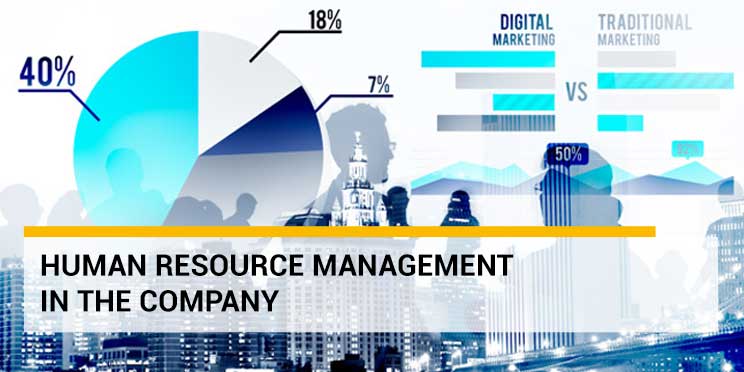Human resource management (HR) is an inseparable part of a company or organization. This sector has the responsibility of managing every person who is part of a company or organization. With good management, companies can run business activities smoothly.
To maximize HR management, companies usually provide special divisions that handle it. You can also find the existence of this division with the name of the HRD, personnel, or HR division. The use of the term can be different. It’s just that this division has the primary responsibility of optimally empowering the human resources owned by the company.
What is Human Resource Management?
In simple language, Human Resource Management is an activity carried out by a company to maximize the potential of its human resources or employees. The staff of the HRD division of a company has duties that are closely related to employees. This responsibility starts from the process of recruiting, developing, evaluating, and laying off employees.
Not only that, but human resource management is also closely related to efforts to maintain relationships between employees and management. HRD staff will take a specific approach so that employees can meet the targets set by management. In connection with this aspect, HRD staff must supervise and control employees.
Also read: Definition of Management, Types, and Functions
HR Management Functions in Business
The existence of a division responsible for human resource management can optimize the performance of company employees. This is closely related to the seven fundamental functions of HR management, namely:
1. Recruitment and selection
The first function of the HRD division in the company is to find and place competent employees. To carry out this function, HRD staff is responsible for recruiting employees. They do not just recruit workers but also carry out a selection process.
2. Performance management
Through good resource management, companies can better monitor employee performance. Supervising and HR management are also closely related to providing feedback so that employees can improve their performance. Companies usually have a performance management suite that includes planning, monitoring, appraisal, and reward.
3. Learning and development
An employee may experience difficulties in carrying out their duties. In connection with this problem, HR management has a crucial function in helping them to improve their performance. For this reason, the HRD division has a budget for employee learning and development.
4. Succession planning
Good HR management can encourage good employee succession. An example of the line is when a manager suddenly resigns. In these conditions, the HRD division has the responsibility of providing a replacement candidate. This is very important so that the company’s activities are not disrupted.
5. Compensation and benefits
To improve employee performance, the HRD division has a role in providing compensation and benefits. This policy is critical as a means of motivating employees. Employee compensation can be in the form of additional money or other rewards such as flexible working time, pension funds, official vehicles, etc.
6. Maintain relationships with workers
Human resource management also has a close relationship in maintaining good relations between management and labour. This aspect is important to pay attention to because bad relations with workers can disrupt business activities.
7. Safety and health
The last aspect, which is the function of HR management, is the safety and health of the workforce. The existence of safety and health guarantees can support employees to work optimally.
Purpose of HR Management Implementation
Good HR management can help a company achieve its goals. That can obtain four objectives from the existence of HR management, namely:
1. Social goals
Human resource management has social goals as a form of responsibility to meet the needs and challenges that arise from society. That way, the company can provide tangible benefits to the community and does not cause adverse impacts that can adversely affect the business image.
2. Organizational goals
There is also an organizational goal of wanting HR to be able to contribute effectively to the company. Through good HR management, companies can align the duties and responsibilities of each employee who comes from various divisions.
3. Functional purpose
The implementation of HR management also aims to ensure that every person in the company can make an optimal contribution.
4. Personal goals
Finally, there are personal goals, which are efforts to help employees achieve their objectives. With the fulfilment of unique purposes, employees can be encouraged to meet organizational goals jointly.
The staff of the human resource management division is very demanding tasks. Therefore, they need support devices that can facilitate their work. SAP Business One is one of them. Many essential features can help you monitor employee performance and sales, you know.


